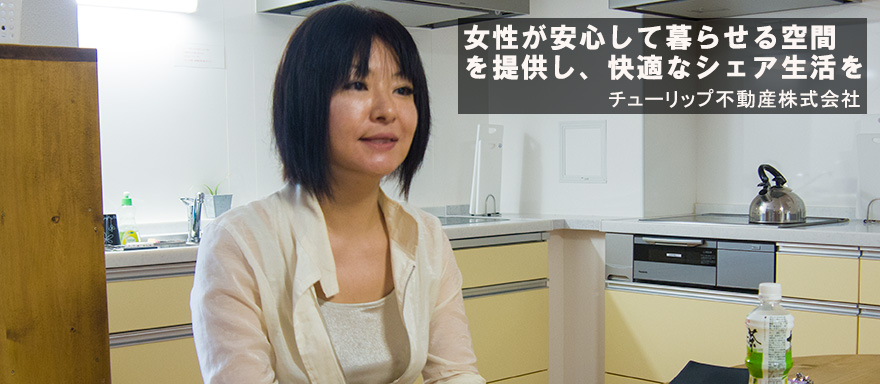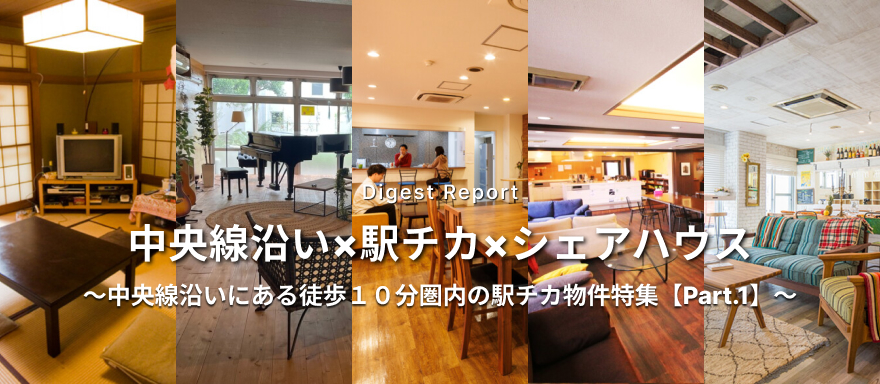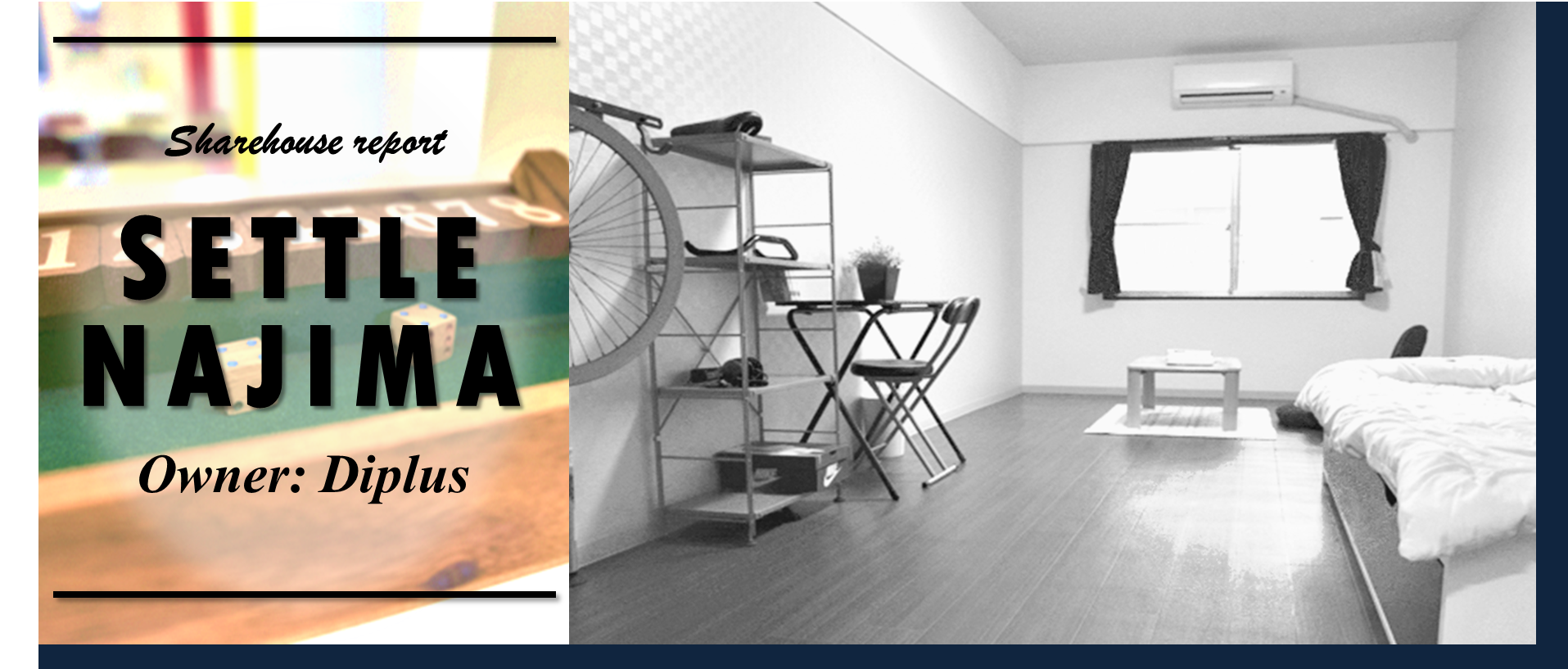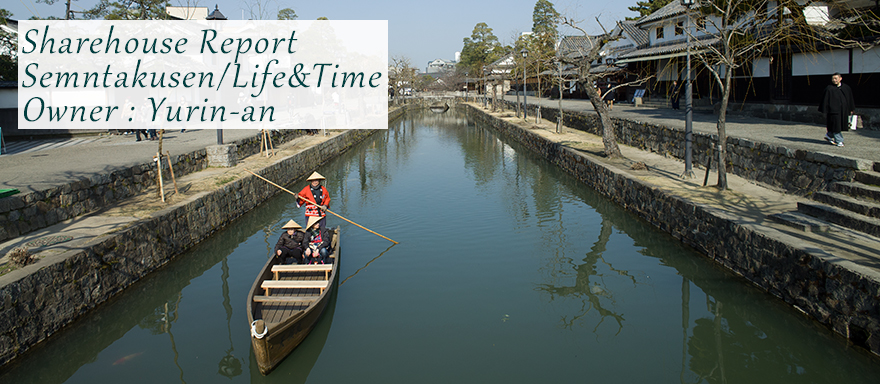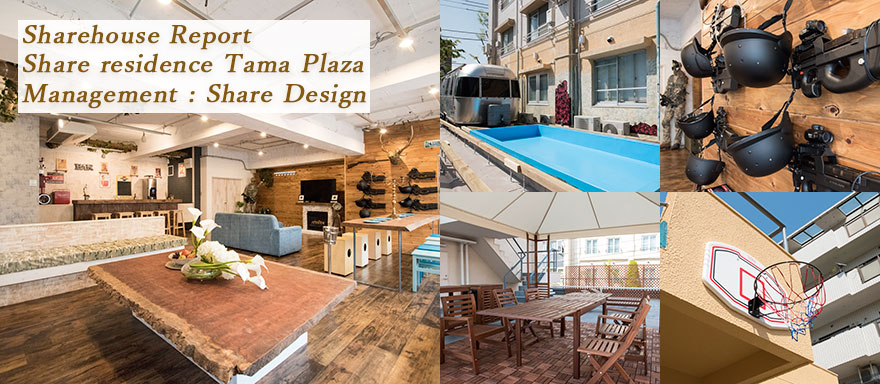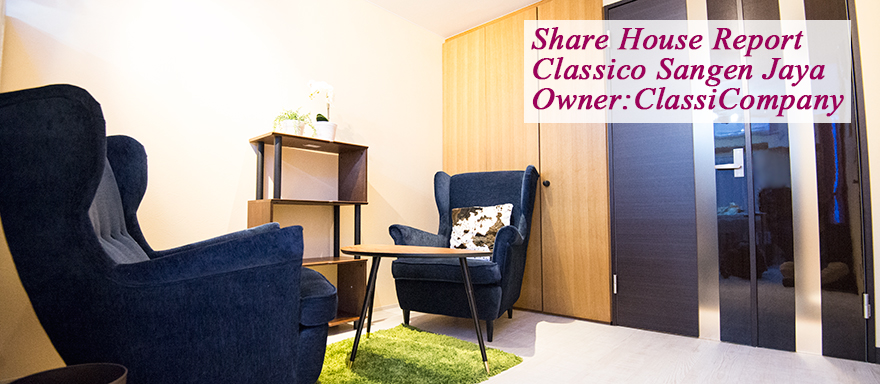Ms. Norie Mizutani, of Tulip Real Estate. Ms. Mizutani was employed by a graphic design company after graduating university in 1995. Leaving her job after getting married, she studied to get a registered real-estate broker credentials while being a housewife. She found employment with a major real estate company and again left this job due to the birth of her eldest daughter. She got her real estate license while raising her child and opened her first sharehouse under Tulip Real Estate in 2003. In 2009 she published a book about sharehouses with Locomotion Publishing.
Back to Basics
In recent years many sharehouses are being developed in metropolitan Tokyo. Houses filled with luxuries one living alone couldn’t even begin to imagine and unique houses based on some kind of theme are opening one after the other.
As someone who introduces these sharehouses to the public, one of the interesting things I’ve noticed is that the concepts and obsessions of the management are manifested in the personality of the house. Just the other day I was told by someone I met that they wanted us to report objectively on the management’s ideas and on areas not usually seen on the house’s homepage.
The faces behind sharehouse management each have their own personalities, and we are interested in what they are all thinking with new and interesting sharehouses being developed one after the other, so from now on we will to try ask as many questions as possible whenever we visit a property and relay this to you, the reader.
Tulip Real Estate was one of the first companies we featured on our site, and CEO Ms. Mizutani graciously agreed to let us interview her today, so a big thank you goes out to her. We spoke to her while visiting their new house, Witt-style apricot terrace, which opened in July.
Tulip Real Estate began in 2003 developing female-exclusive sharehouses and have since developed 15 properties. I am sure the concept of sharehouses has changed from that of the past and they have experienced a lot of trouble and hardships to get where they are today, however Ms. Mizutani doesn’t show it. Please read on for the interview.
- ---Thank you so much for your time today. I see you as a pioneer in the sharehouse industry. Has it changed much since you started out?
- Ms. Mizutani
-
Yeah, when I started out in 2002 the communal living environments of that time were mainly guest houses or foreign houses, with the residents being non-Japanese tourists or women who had just returned from abroad. There weren’t any companies around offering a shared living lifestyle to the general public at all.
- ---Is it difficult to start a new industry without a precedent there?
- Ms. Mizutani
-
It was around the time I left my real estate job to have my child, so in that sense it was tough. But the concept of a sharehouse itself is ‘economical and efficient’ so even from the beginning I had a hunch we would make it. One of the good things about being a housewife if that even if business fell through, there was always my husband’s salary to fall back on.
- ---I see, so it was because you had the support of your husband that you got this far.
- Ms. Mizutani
-
No, not at all. I think my husband only saw my work as a hobby much like English conversation or hula dancing.
- ---(laughs)Oh, really? I think you have worked very hard to expand a business all the while raising a child.
- Ms. Mizutani
-
For any other job it would be hard, but sharehouse management is a job that really works for housewives and also I could draw on my own experience a lot, which was good.
The importance of doing things that should be done
- ---Sharehouse management works well for housewives?
- Ms. Mizutani
-
It does. Keeping communal areas clean and putting things back where they belong might seem like trivial things to you, but it’s important to do these things that should be done. I also have to think about many different things at the same time and I feel that I have really used my experience as a housewife in sharehouse management. So I would recommend sharehouses to any housewives out there with an interest in starting their own business.
- ---I see. I hear a lot recently about new concept sharehouses and houses filled with all the latest gadgets, and also that you want to increase the amount of properties you manage, Ms. Mizutani. I thought that you must hold a lot of events and things to draw tenants in, but that is not the case, is it?
- Ms. Mizutani
-
Not at all, we’re plain and simple (laughs). I don’t know about other houses, but I want to stay true to the basics. If our tenants really wanted some kind of event we would organise one, but I want to increase the amount of times we have the cleaners come in if there were ever any allowances in the budget (laughs).
- ---Oh, I see what you mean. The place is clean - immaculate, even, and we just popped in out of the blue today.
- Ms. Mizutani
-
I know that concept sharehouses are all the rage at the moment, but I’m holding back while I still don’t understand myself what kind of influence mingling with people outside of the house has on the tenants and the neighborhood. We are a company providing a certain lifestyle to our tenants and we are first and foremost concerned with providing a safe and comfortable environment. It might be necessary to say all the right things in order to get people in the house, but managing a communal lifestyle is quite difficult, you know. Someone used someone elses tableware, or someone doesn’t like that someone else lies down next to them when watching TV… things like that.
- ---Oh, your facial expression right now really represented how difficult it must be. (laughs)
- Ms. Mizutani
-
I’m glad you understand (laughs). I may be repeating myself here but I work hard to provide the tenants living with us a safe and comfortable environment rather than state-of-the-art luxurious facilities.
- ---You’re really thinking from the tenant’s point of view, aren’t you.
- Ms. Mizutani
-
Yes, and also we sublease※ so we don’t forget the owner’s point of view and make sure to keep useless fees to a minimum. ※Subleasing is a system where a building is leased from the owner and rented out to a third-party with a fixed amount paid to the owner in rent.
(laughs) When you guided me around this property earlier it impressed me that you pointed things out to say, “This kind of thing is important to girls,” so many times. It’s a safe and secure house, perfect for girls moving in from the country uneasy about living on their own, and their parent’s will be at ease, too. You said that there weren’t any state-of-the-art facilities or equipment, but judging from my visit today I’d say Apricot Terrace is full of stylish touches here and there to make any girl happy.
- ---By the way, you said you wanted to increase the amount of share properties you manage. Do you have any specific objectives or ideas you want to develop in future?
- Ms. Mizutani
-
Hmm, there’s nothing in particular, but I do want to try my hand at a large venture because as Masao Ogura of Yamato Transport said, “If the country won’t change the world, its citizens will.” (laughs)
- That’s a pretty awesome quote to end an article with (laughs). Thank you so much for your time today.

